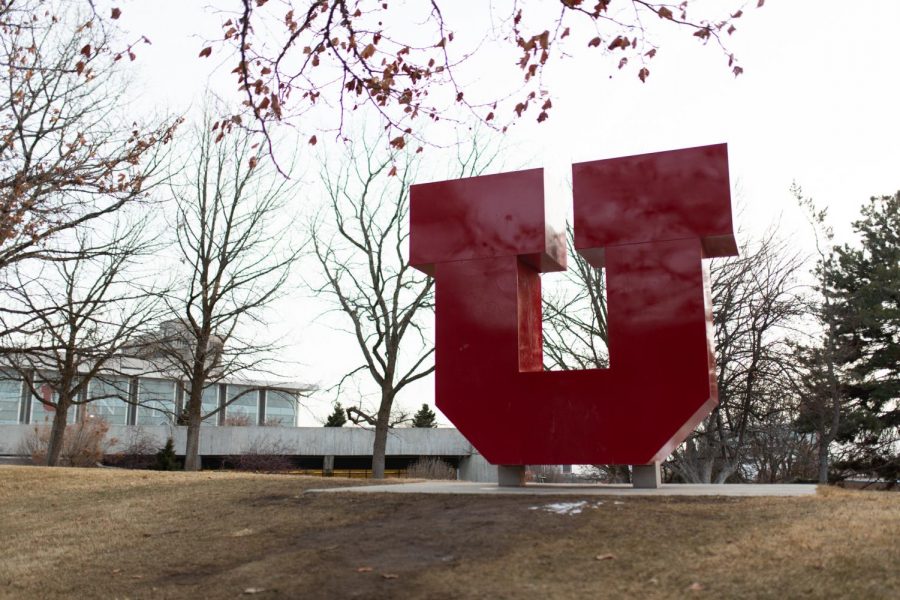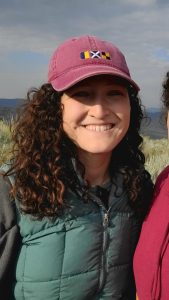Women’s Resource Center Holds Conversation on Reproductive Justice for Undocumented People
Evening on University of Utah campus, Thursday in Salt Lake City. (Photo by Maya Fraser | The Daily Utah Chronicle)
September 29, 2022
In the second session of the new series Coffee and Conversations, held by the Women’s Resource Center, panelists and attendees discussed the unique challenges undocumented people face in the struggle for reproductive justice.
Katie Valdez, the program coordinator at the Women’s Resource Center, hosted the event on Sept. 27 in the Union Building.
“We wanted to create a space that would be consistent for students,” Valdez said. “[A space] they could come to on campus and feel comfortable talking about these sort of sensitive issues.”
The WRC started the critical discussion series this fall. Each semester the series will focus on one specific topic, with every session approaching that topic from a different lens. The topic for this semester is reproductive justice following the overturning of Roe v. Wade this past summer.
“Reproductive justice to me looks like having my own choices,” said panelist Xochitl Juarez who is a DACA recipient and a third-year social work and ethnic studies major. “Having equity, especially when it comes to things like Medicaid and healthcare.”
Juarez is also the co-chair of Somos Dreamers, a student-led organization committed to advocating for undocumented students.
The layered discussion touched on a wide range of barriers and impacts that undocumented people face.
Raquel Cetz, panelist and interim director at the Dream Center, brought up the lack of access to health insurance undocumented people have.
“When it comes to undocumented folk accessing healthcare, in general, nationwide, it’s an issue,” Cetz said.
Undocumented people, including DACA recipients, are not eligible to enroll in Medicare, Medicaid or CHIP. They are also not able to purchase plans on the Affordable Care Act marketplace. California recently passed legislation making it the first state to provide healthcare for all of its undocumented residents.
Panelist and ethnic studies Professor, Dr. Annie Fukushima, said accessibility goes beyond financial and insurance barriers.
“Are they treated fairly?” Fukushima said. “Are their concerns taken seriously? Is the service and resources provided in our preferred language? They may then rely on their children to be their interpreter for very complex needs or conversations that their child may not understand.”
The gathering also provided a space for vulnerable tears and intimate stories. Attendees and panelists conversed about the power in numbers, collective action and the need for more professors to attend events like this one.
In addition to coffee, conversation and pastries, the event offered a selection of books about reproductive justice from the Marriott Library that attendees could check out on site. The Ascent Center for Reproductive and Sexual Health had a table where they were handing out free emergency contraception. Representatives from the Ascent Center mentioned that all U pharmacies are currently providing free emergency contraception as well.
Valdez said Coffee and Conversations allows the time for students to engage with these topics for a longer period of time, in a more meaningful way and from a lot of perspectives.
“Sometimes we would find ourselves doing one-off events, which sometimes can be nice, but isn’t super ideal when we’re talking about these really big and heavy ideas that deserve more discussion and engagement,” Valdez said.
The third session, taking place on Oct. 4 from 5-6:30 p.m., will be a zine-making workshop. On an Instagram post for the event, the WRC said a widely accessible way to get involved in the reproductive justice movement is making zines.
“We’ll be talking about the history of zines, why and how they came about, how they can be used as a tool in organizing and activism, and of course, how to make them!” the post reads. “Supplies will be provided, but you’re welcome to bring any supplies you’d like to use.”
The final session for the semester on Nov. 3 is titled “Resistance in Existence: Indigenous Peoples in the Struggle for RJ.” All are welcome to attend and it’s free to register.








